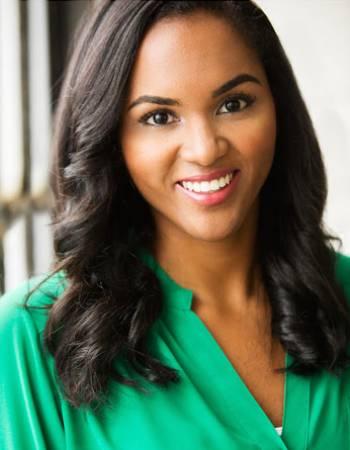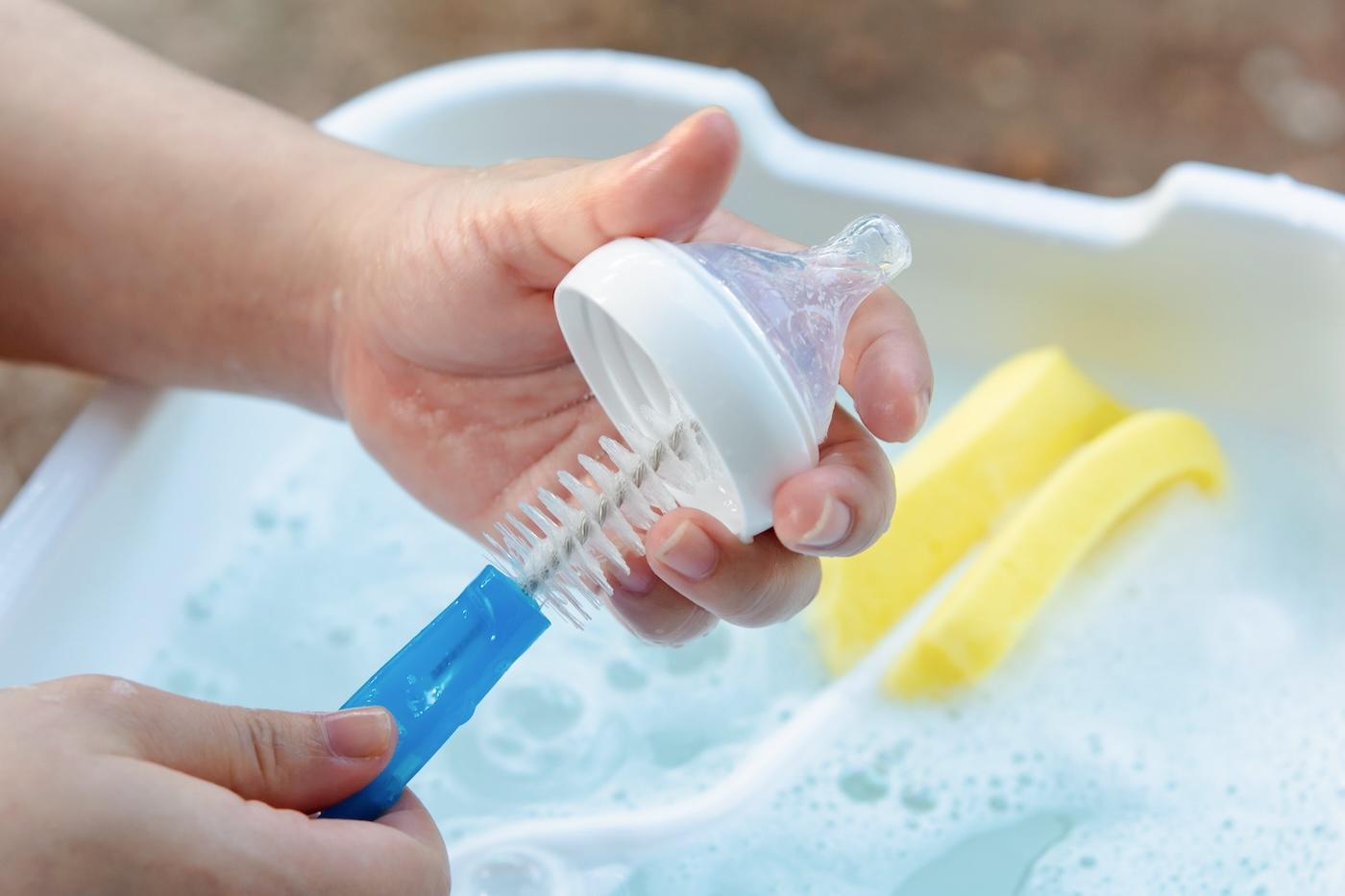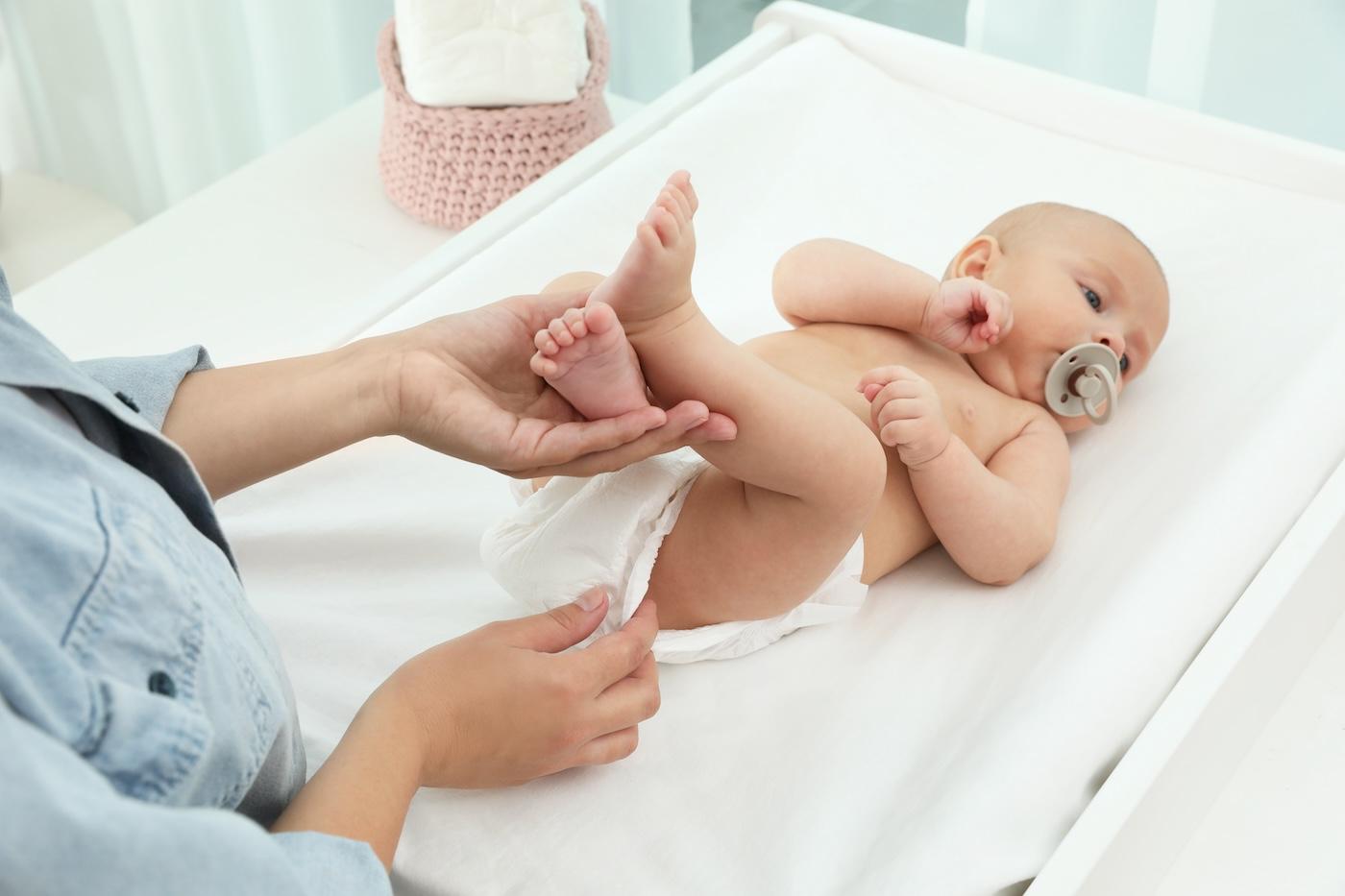BABY
When Can Babies Drink Water?
We waded through your questions about babies and water to put together this crystal-clear guide!

Written by
Gabrielle McPherson, MS, RDN, LDN

For grownups, water is a nutritional staple! Not to mention, how refreshing does it feel to chug a cool glass of H2O on a hot day? That’s not the case for babies! For little ones, breastmilk and formula do a fantastic job of quenching a little one’s thirst! But soon, the day will come when your bub is ready for some agua. So when can your baby drink water? And how much water can your baby have?
We waded through parents’ most asked questions about babies and water to put together this crystal-clear guide to a baby and toddler’s water intake. Drink up!
Do babies need water?
Not before 6 months! The American Academy of Pediatrics (AAP) makes it clear that babies don’t need water or any other liquids besides breastmilk or iron-fortified formula in the first six months of life. However, things shift a bit when it comes to babies 6 months and older. The 2020-2025 Dietary Guidelines for Americans (DGAs) and the AAP say you can give your baby water, but hydration with water isn’t crucial until their first birthday.
When can babies drink water?
Babies can start drinking water at 6 months. It helps to start offering some H2O when your baby begins eating solids—around 6 months—to keep their bowels moving smoothly. While some parents opt to start solids between 4 and 6 months, the AAP suggests waiting until age 6 months for water.
After 6 months, water can help babies get used to drinking the beverage that will become a hydration staple and can help prevent constipation as babies expand their diets beyond breastmilk and/or formula. Plus, water may help keep your baby’s teeth clean by washing away bits of food. If your family lives where water is fluoridated, it may help preserve dental health by strengthening teeth.
How do you introduce water to a baby?
Introducing water to your little one simply starts with a sip. While you could offer water in a bottle, you might not want to. Your baby expects milk to come from the breast or bottle, so swigging water from the vessel they’ve come to love may come as a not-so-pleasant surprise. Consider reserving their milk for just the bottle, and offer water in a brand-new open cup, sippy, or straw cup. That way, they’ll get to learn and develop some new skills. (Check out some tips for introducing your baby to a cup!)
Feel free to serve HFeel free to serve H2O at any time of the day, because at this age, water drinking is not likely to replace your baby’s milk source. So, maybe on a hot day you could offer your baby water via their sippy cup while playing at the park. Or you might want to serve a couple of ounces along whatever they’re nibbling on in their highchair. Keep cool and go with the flow.2O at any time of the day, because at this age, water drinking is not likely to replace your baby’s milk source. So, maybe on a hot day you could offer your baby water via their sippy cup while playing at the park. Or you might want to serve a couple of ounces along whatever they’re nibbling on in their highchair. Keep cool and go with the flow.
How much water should babies and toddlers drink?
Since breastmilk and/or iron-fortified formulas are still their primary source of hydration, babies don’t need much water before their first birthday. But once they hit the big 1, it becomes an important part of their nutrition! Here are the recommended servings and daily water allowances for babies and toddlers.
Recommended Water Intake for Babies and Kids
- Babies 0 to 6 months: no water—only breastmilk/formula!
- Babies ages 6 to 12 months: 4 to 8 ounces ( ½ to 1 cup) of water per day
- Toddlers ages 12 to 24 months: 8 to 32 ounces (1 to 4 cups) of water per day
- Toddlers 2 to 5 years: 8 to 40 ounces (1 to 5 cups) of water per day
One helpful rule of thumb for toddlers and bigger kids: Aim for one cup (8 oz) for every year of your child’s age, suggests the urology department at the Children’s Hospital. For example, aim for two cups for a 2-year-old, three cups a day for a 3-year-old, and so on (after 8, the goal is 64 ounces regardless of age).
Can babies have too much water?
Again, babies who haven’t reached 6 months get all the nutrition and hydration they need from breastmilk and iron-fortified formula, and offering water before 6 months (or diluting formula with water) can be dangerous.
If your baby takes iron-fortified formula, it must be made correctly to keep them safe and healthy. For the right ratio, check the back of your baby’s formula container. If you need more help, call the pediatrician or pediatrician after-hours hotline. (More tips on preparing formula!)
Here are some risks of offering too much water or offering a baby water too soon…
Water intoxication: Young babies are at risk for water intoxication if they’re given water too early. Also, babies 6 months and older are at risk if their water intake surpasses recommendations. Symptoms of water intoxication are:
- Unusual clear or pale-colored urine
- Seizures
- Face swelling
- Unusual fussiness
- Low body temperature (97 degrees Fahrenheit or below)
- Changes in behavior
- Frequent diaper changes (more than six to eight daily)
Electrolyte imbalances: Electrolytes are minerals (like sodium and potassium) the body needs to live, and they must remain at normal levels for your baby’s health and safety. Too much water can cause a baby’s electrolyte levels to fluctuate, putting them at serious risk for illness and hospitalization. Babies can experience disruptions in heart rhythms, weakness, muscle spasms, and more.
Lack of nutrients: Water contains zero nutrients. That means if young babies overdo it on water, they may not get enough nutrients from breastmilk and iron-fortified formula to meet their needs. Adequate nutrition is essential for growth, healthy brain function, learning, and processing.
Risk of low milk supply: For breastfeeding babies, frequent feedings at the breast communicate to their parent’s body that it needs to make more milk. But your body may slow its milk production if your babe opts for water over milk. Fortunately, babies 6 months and up are usually drinking low enough amounts of water that it shouldn’t interfere with milk feedings.
How do I know if my baby is getting enough water?
If your baby is wetting about six diapers a day, they’re likely getting the hydration they need. Remember, before your baby blows out their first birthday candle, breastmilk and/or formula will be doing the heavy lifting when it comes to hydration! So, even if you suspect your baby needs more to drink, it’s very important not to exceed 8 ounces of water for babies under a year. Instead, offer breastmilk or formula. And if you see the below signs of dehydration, give your healthcare provider a call.
Signs of Mild to Moderate Dehydration in Babies and Kids
- Less than six wet diapers a day
- Dry, parched mouth
- Fewer tears when crying
- Sunken soft spot on the head
- Fewer bowel movements (unless diarrhea is causing dehydration)
- Playing less than usual
Signs of Severe Dehydration in Babies and Kids
- Only peeing once or twice a day
- Very fussy
- Extreme sleepiness
- Sunken eyes
- Wrinkly skin
- Discolored, cool hands or feet
More on Nutrition:
- Milk for Toddlers: A Guide
- Calcium-Rich Foods for Babies and Toddlers
- Brain-Boosting Foods for Babies
- Iron-Rich Foods for Babies
***
REFERENCES- The American Academy of Pediatrics: How to Safely Prepare Baby Formula With Water
- U.S. Department of Agriculture: Dietary Guidelines for Americans 2020-2025
- The American Academy of Pediatrics: Recommended Drinks for Children Age 5 & Younger
- Children’s Hospital of Orange County: How Much Water Should Kids Drink?
- The American Academy of Pediatrics: Fluoridation
- The American Academy of Pediatrics: Choose Water for Healthy Hydration
- The American Academy of Pediatrics: Signs of Dehydration in Infants and Children
Disclaimer: The information on our site is NOT medical advice for any specific person or condition. It is only meant as general information. If you have any medical questions and concerns about your child or yourself, please contact your health provider.
SHARE THIS ARTICLE
MOST LOVED
Sleepytime Sidekicks
More on Baby
About Gabrielle McPherson, MS, RDN, LDN
Gabrielle McPherson, MS, RDN, LDN is registered dietitian in Missouri who specializes in community and pediatric nutrition. Gaby is passionate about encouraging families to eat well in simple, practical ways that are realistic...and delicious! When not working, Gaby loves cooking, baking, and making messes and memories with her sous-chef/preschooler Charlotte.












